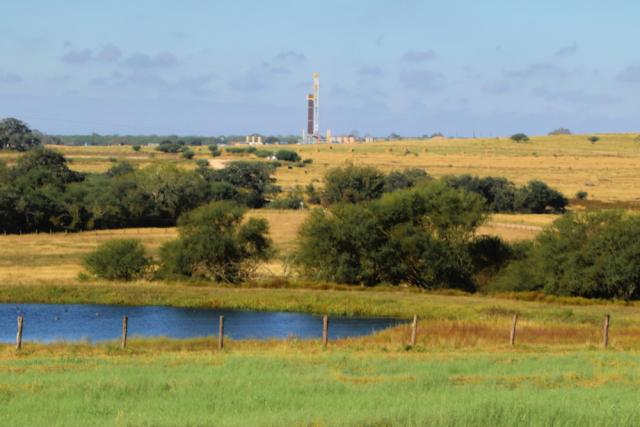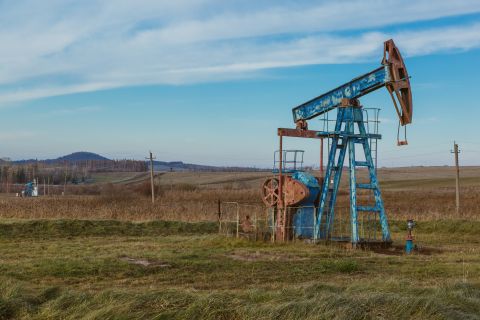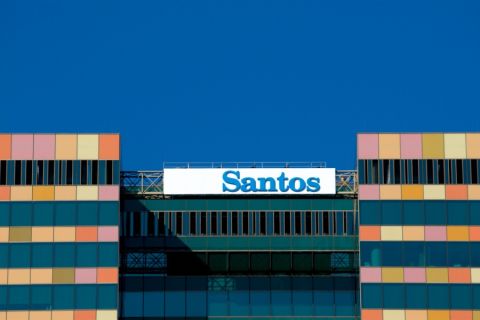
The combined asset bases of Penn Virginia, Rocky Creek Resources and Lonestar created a consolidated asset position with over 140,000 net acres strategically positioned in the core of the Eagle Ford play in South Texas. (Source: Penn Virginia Corp. / Oil and Gas Investor April 2021 issue)
Penn Virginia Corp. closed the all-stock acquisition of Lonestar Resources US Inc. with an announcement on Oct. 6 of plans to rename the combined company Ranger Oil Corp.
With a corporate lineage dating back to the late 1800s, Penn Virginia was formed as an Appalachian coal company. It later evolved into a natural gas producer and then oil with assets in various shale basins.
The rebrand to Ranger Oil, according to a release, reflects the company’s focus on “safe and efficient oil and natural gas operations in Texas,” where it eventually narrowed its focus solely to the Eagle Ford bolstered with the recent acquisitions of Lonestar and Rocky Creek Resources, both of which closed within the past year.
“In a very short time, we have significantly increased the scope and scale of the company, amplifying its free cash flow generation and return potential,” Darrin Henke, president and CEO of the company, commented in the release on Oct. 6.
The combined asset bases of Penn Virginia, Rocky Creek Resources and Lonestar created a consolidated asset position producing almost 40,000 boe/d with over 140,000 net acres strategically positioned in the core of the Eagle Ford play in South Texas.
“We now own high-quality inventory approximating 750 locations, approaching two decades of inventory at our current drilling pace,” Henke added.
The company currently anticipates that going forward it will maintain the two-rig program it was operating prior to the closing of the $370 million Lonestar merger. Based on this pace of development, capex for the fourth quarter is anticipated to be approximately $65 million to $75 million, which the company said it expects will continue its track record of generating significant free cash flow.
“We’ve announced seven consecutive quarters of free cash flow through June 30 of this year and project Ranger to produce over $200 million of free cash flow in 2022 at current strip pricing,” Henke said.
In addition to its expansion through acquisitions, Henke also highlighted the significant changes to the Penn Virginia management team that he said drove step change in recent asset, operational and financial performance over the last several quarters. The result, Henke noted, was made apparent as Penn Virginia achieved the highest EBITDA margin per boe of any public U.S. independent oil and gas company from the beginning of 2020 through the first half of 2021.
For more on Penn Virginia’s transformation check out CEO Darrin Henke’s Q&A in the April 2021 issue of Oil and Gas Investor.

Henke joined Penn Virginia as CEO in August 2020, which happened to be during mid-negotiations for the company’s acquisition of Rocky Creek Resources with Juniper Capital Advisors LP, Rocky Creek’s financial backer.
As part of the deal, Juniper Capital took a nearly 60% majority ownership position in Penn Virginia. In exchange, Penn Virginia’s balance sheet was relieved of approximately $130 million in debt, simultaneously almost tripling the producer’s liquidity under its credit facility and more than doubling its market cap.
“In addition to our strategic and operational achievements,” Henke continued, “we transformed our balance sheet over the past year by bringing in substantial equity capital from an experienced oil and gas equity group, issuing senior unsecured notes to extend maturities, and amending and expanding our credit facility borrowing base while reducing the balance borrowed on the facility.”
“This resulted in our company having an estimated 1.5x pro-forma LTM leverage,” he added.
In a statement commenting on Penn Virginia’s rebranding, Edward Geiser, chairman of the board of the company and managing partner of Juniper Capital, said, “Juniper Capital congratulates the Ranger Oil team for its recent accomplishments and remains a committed long term equity partner of the company.”
“The recent operational, financial and strategic achievements continue to validate and bolster our investment thesis in partnering with the company,” Geiser continued, “and we look forward to the ongoing performance that Ranger Oil and its management team have planned as they execute their strategy in the core of one of the most prolific oil basins in North America.”
Penn Virginia intends to officially rebrand as Ranger Oil Corp., effective Oct. 18, and expects the rebranding to be fully complete prior to year-end 2021, which according to Rusty Kelley, senior vice president and CFO, will mark the beginning of another phase of “significant fundamental value creation” for the company.
Going forward, Kelley said the company will maintain focus on maximizing operational and capital efficiency, generating superior returns and building on its consistent track record of free cash flow generation, which it has sustained every quarter since fourth-quarter 2019.
“We plan to continue our disciplined approach to potential consolidation opportunities while maintaining a pristine balance sheet with substantial liquidity, including our commitment to achieving a 1.0x leverage ratio in the first half of 2022,” he said.
As Ranger, the company also intend to drive further operational efficiencies including longer laterals, increased wells per pads, enhanced completion techniques and shared facilities.
Lastly, Kelley said the company plans to further establish itself as a leader in ESG-related results.
“We have already been recognized as having among the lowest emissions for operators in the Eagle Ford, and we plan to target additional enhancements as we integrate the Lonestar assets,” he said. “In addition, the company will continue fostering its diverse and inclusive environment and increase our community engagement efforts.”
In conjunction with the closing of the Lonestar merger, the company is assuming the swapped hedge volumes held by Lonestar and resetting the majority of these swaps to reflect current market pricing. This reset is not anticipated to materially impact the company’s leverage metrics; however, it is anticipated to increase its future adjusted EBITDAX and free cash flow, the release said.
Additionally, Darin G. Holderness resigned from the company’s board of directors in connection with the Lonestar closing. Richard Burnett, former chairman of the board of directors for Lonestar, has been appointed to the company’s board to fill the vacancy. Burnett will also serve as chairman of the audit committee.
Effective Oct. 18, Ranger Oil will begin trading under the NASDAQ ticker symbol of ROCC.
Recommended Reading
Brett: Oil M&A Outlook is Strong, Even With Bifurcation in Valuations
2024-04-18 - Valuations across major basins are experiencing a very divergent bifurcation as value rushes back toward high-quality undeveloped properties.
Marketed: BKV Chelsea 214 Well Package in Marcellus Shale
2024-04-18 - BKV Chelsea has retained EnergyNet for the sale of a 214 non-operated well package in Bradford, Lycoming, Sullivan, Susquehanna, Tioga and Wyoming counties, Pennsylvania.
Defeating the ‘Four Horseman’ of Flow Assurance
2024-04-18 - Service companies combine processes and techniques to mitigate the impact of paraffin, asphaltenes, hydrates and scale on production — and keep the cash flowing.
Santos’ Pikka Phase 1 in Alaska to Deliver First Oil by 2026
2024-04-18 - Australia's Santos expects first oil to flow from the 80,000 bbl/d Pikka Phase 1 project in Alaska by 2026, diversifying Santos' portfolio and reducing geographic concentration risk.
Ozark Gas Transmission’s Pipeline Supply Access Project in Service
2024-04-18 - Black Bear Transmission’s subsidiary Ozark Gas Transmission placed its supply access project in service on April 8, providing increased gas supply reliability for Ozark shippers.




